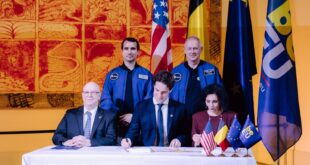by Dr. Olga Stelmakh-Drescher and Prof. Steven Freeland
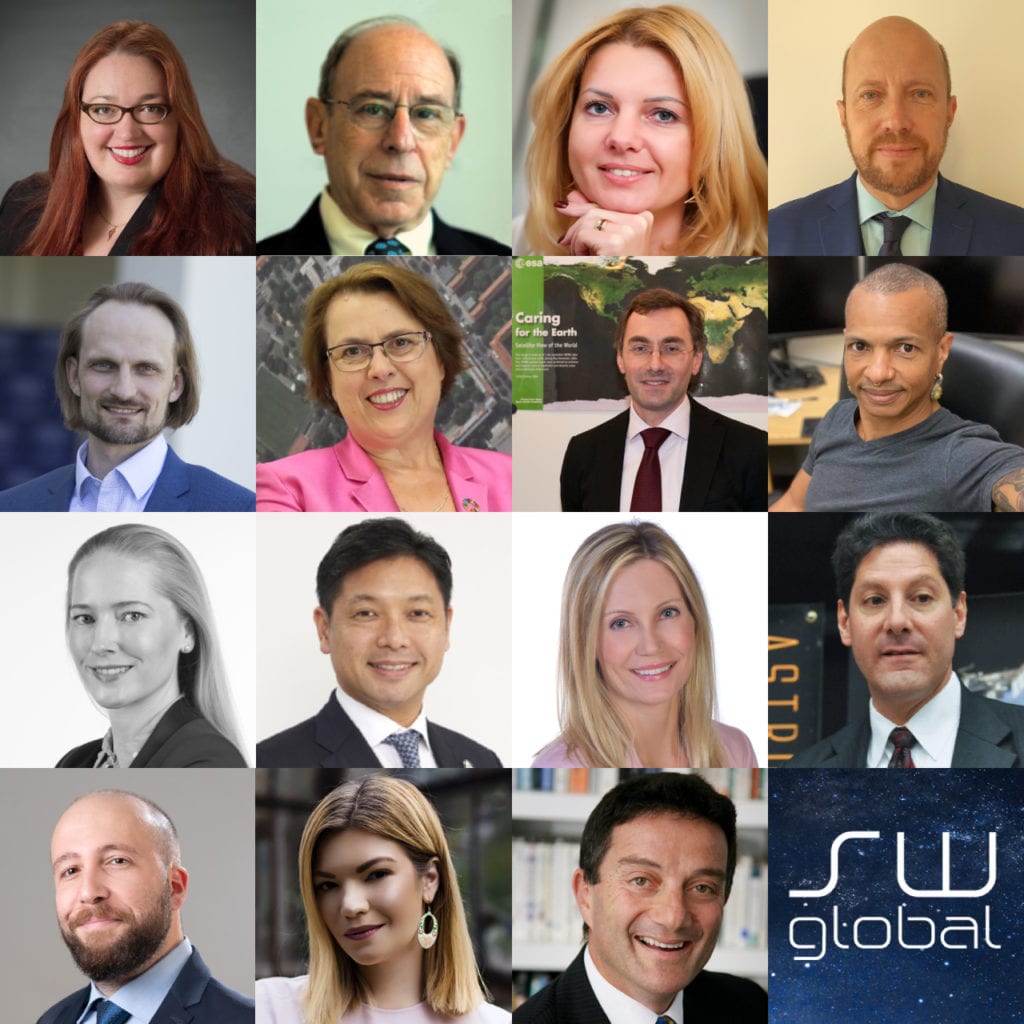 Space Sustainability is the crucial requirement for a long-term and effective operational space environment. Being highly multifaceted, it has many interdependent and complementary constituent elements, facets and vectors – it is an enabler of continuous and unconditionally safe activities in space, as well as a driver of change as regards norms of behavior, the development of more efficient transparency and confidence-building measures, the strengthening of cooperation and enhanced sharing of best practices, and the building of an inclusive, coherent and self-contained regime for the reduction of risk and uncertainty by fostering, to the greatest possible degree, a debris- and collision – free environment.
Space Sustainability is the crucial requirement for a long-term and effective operational space environment. Being highly multifaceted, it has many interdependent and complementary constituent elements, facets and vectors – it is an enabler of continuous and unconditionally safe activities in space, as well as a driver of change as regards norms of behavior, the development of more efficient transparency and confidence-building measures, the strengthening of cooperation and enhanced sharing of best practices, and the building of an inclusive, coherent and self-contained regime for the reduction of risk and uncertainty by fostering, to the greatest possible degree, a debris- and collision – free environment.
The issue of Space Sustainability has gained prominence in international discussions over the past decade, particularly due to the work of the UNCOPUOS that has ultimately led to the adoption of the Guidelines for the Long-Term Sustainability of Outer Space Activities. Even so, and despite numerous efforts from sectors of civil society and the space community, discrepancies as regards the understanding of the scope of this notion still exist, and further critical measures need to be taken by space actors, including the establishment of appropriate enforcement mechanisms, to ensure a robust baseline for sustainability of the space environment.
The complexity of the Space Sustainability concept is evident; yet even greater are the complexities posed by the type of measures to be taken, the mode of implementation and the level of enforcement, each of which may vary from jurisdiction to jurisdiction. This is not only a governmental concern, given that the empirical significance of Space Sustainability is explicitly recognized by responsible industry actors.
As such the issue of Space Sustainability has been on the agenda of the World Economic Forum Global Future Council on Space Technologies which initiated a Space Sustainability Rating, being currently developed by a consortium of actors. Particularly topical in the current era of space innovation, the Rating was conceptualized as a new way of, and an additional tool for the sector in addressing orbital challenges by encouraging and incentivizing responsible behavior in space. This centers on the need for increasing transparency of space actors’ debris mitigation efforts designed to support long-term sustainability of the space environment.
In the meantime, other space industry stakeholders focus on space situational awareness data sharing and the development of new experimental technologies that would facilitate, from a technical standpoint, timely space traffic management operations, particularly through on-orbit mission life extension and collision avoidance maneuverability.
This project was launched as a partnership between SpaceWatch.Global and the authors to demonstrate the divergent views and perceptions of those policy- and decision-makers, thought leaders, influencers and advocates who directly or indirectly are involved in the issue of Space Sustainability. The publication, acknowledgement and a thorough analysis of these differences might be an appropriate starting point to streamline and align worldwide collaborative Space Sustainability efforts.
2020 was, as we all know, a year of change, challenge and opportunity, of actions and reactions, of silence and slow-down. Yet, overall, the global space economy continued to grow, and the diversity of space activities continued. Thus, we were particularly interested to see what space leaders representing different geographic regions, genders and generations have defined for themselves as a most driving trend regarding space sustainability for 2020/2021 and beyond. We have tried to ensure a balanced representation of diverse space stakeholders. In addition to the 13 listed views, we received feedback from some others to the effect that no significant change was noticed over the last year that requires attention or deserves special mention.
In this context, we hope that the diversity of authoritative, insightful and thought-provoking views set out below will further illustrate the multifaceted nature of the concept of Space Sustainability and that it can be viewed through different prisms.
We wish to thank all contributors for their willingness to reflect with us in the launch of this dialogue on the SpaceWatch.Global platform. We anticipate that the expert opinions expressed below will stimulate further discussion as to what coordinated, cooperative and collaborative actions are required to ensure that the myriad issues around Space Sustainability receive global attention and engagement, as we all strive towards a multilateral and internationally secure solution. We will watch these important discussions with interest and hope also to participate and contribute.
Space Sustainability Trends 2020/2021 and Beyond

Thanks to the leadership and proactivity of some UN Members States coupled with the talent and ingenuity of scientists and engineers and paired with the wittiness and vigilance of lawyers and policymakers I am convinced that collectively we will maintain outer space safe, secure and sustainable space environment. The international space community can count on the support of the UN, through the General Assembly, COPUOS and UNOOSA, because only together we will succeed in the endeavour to secure space for future generations.
Simonetta Di Pippo, Director, United Nations Office for Outer Space Affairs
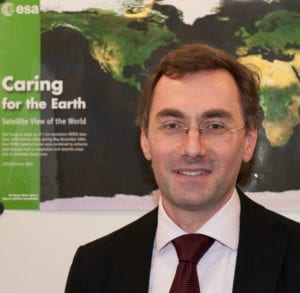
Covid-19 demonstrated the relevance of space applications as an indispensable instrument for crisis management, used effectively for tracking, monitoring or communicating. Space applications are now even more in the centre of digitalisation, pushed by COVID-19. But space also reminds us of our responsibility for the climate, easing the effects on humans, animals and nature.
Kai-Uwe Schrogl, German EU-Council Presidency Team, Germany

This has been a year in which the pandemic highlighted the crucial role space plays in keeping our societies and economies running smoothly through key technologies, including earth observation, satellite navigation, and communications. New rules and approaches such as on-orbit servicing are essential to the continued, sustainable use of space.
Nobu Okada, Founder & CEO, Astroscale Holdings Inc., Japan

2020 is the year that megaconstellations shifted from theoretical to actual. SpaceX has launched around 1000 satellites as part of its Starlink constellation, which isn’t anywhere near completion. This is happening without any international consensus on how STM should look, whether the trade-off for the astronomical community is acceptable, and what to do about end-of-life. This is a true challenge to space sustainability.
Victoria Samson, Washington Office Director, Secure World Foundation, USA

This year will be remembered as a turning point in history when the population of active satellites in orbit began to grow exponentially. While the benefits these satellites provide is clear for communities on Earth, this development lays bare the critical need for a holistic and global approach to governing Low-Earth Orbits and the traffic within them.
Nikolai Khlystov, Lead, Future of Mobility Platform and Global Future Council on Space, World Economic Forum, Switzerland
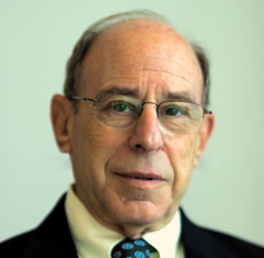
Varied efforts proposed to internationally manage outer space to prevent serious conjunctions have unfortunately failed to provide economically viable or effective technological, legal, or political solutions. A developing problem, beyond the launching of a multitude of new small spacecraft, is how to effectively coordinate the coordinators: all the different groups around the globe, each with different proposals to address overlapping subsets of problems related to crowding and debris.
Henry Hertzfeld, Director, Space Policy Institute, George Washington University, Washington, D.C., USA

The increased usage of outer space for a multitude of purposes has highlighted the importance of better space situational awareness. Geopolitically, the increased use calls for closer cooperation and coordination at the international level. Only with transparency and a free flow of information to all actors, can we ensure the level of stability needed to secure a future safe exploration of outer space.
Emilie Marley Siemssen, Lead Legal & Space Regulatory Counsel and Launch Director at GomSpace, Denmark

In order to achieve real space sustainability, we need to develop metrics such as orbital carrying capacity and a space traffic footprint, whilst extending environmental protection for earth, oceans, and atmosphere to near-Earth space! ASTRIAGraph is a multi-source digital library for the space domain that can be invoked to underwrite this goal!
Moriba Jah, Associate Professor, Aerospace Engineering and Engineering Mechanics Department, Mrs. Pearlie Dashiell Henderson Centennial Fellowship in Engineering, The University of Texas at Austin

The commercialization of military space is well underway in the United States and elsewhere. Although this is properly viewed as positive in terms of cost-savings and efficiencies, it carries downside risks, notably the perceived legitimization of Chinese and Russian state-owned enterprises deployed to advance a more malign brand of space civil-military fusion.
Jana Robinson, Ph.D., Space Security Program Director, Prague Security Studies Institute, Czech Republic
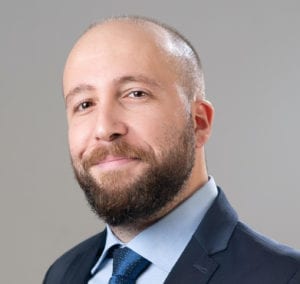
One of the key sustainability trends that emerged this year is interoperability. The development of interoperable and common exploration infrastructure and standards may enable new forms of international cooperation fostering peace, prosperity, inclusiveness and sustainability. If properly designed and implemented, the concept of interoperability could revolutionize the exploration and use of celestial bodies by enabling the establishment of shared modular facilities open to the contributions and use of all international partners.
Antonino Salmeri, Doctoral Researcher in Space Law, University of Luxembourg (through support of the Luxembourg National Research Fund (FNR)), Lead of the Space Exploration Project Group for Space Generation Advisory Council, Italy

It was for the first time in 2020 that we faced a worrisome situation where another spacecraft approached a GSO satellite that used Intersputnik’s frequencies. In practice, this turned out to be an orbital challenge. Do we have the same understanding of the scarce legal regulation in the field of space traffic? What should we do ourselves and what behaviour can we reasonably expect from another operator? A clear procedure similar to the ITU regime dealing with frequency interference would be helpful because occasional close proximity in orbit seems to have just become our day-to-day routine.
Elina Morozova, Executive Director, Intersputnik International Organization of Space Communications, Russian Federation

The traditional role of States as drivers of space policies is increasingly challenged by the actions and interests of private actors. This is not a bad thing as it will help us find ways to reconcile national security interests with the imperative of preserving space. Conflict is not an option.
André João Rypl, Diplomat, Ministry of External Affairs, Brazil
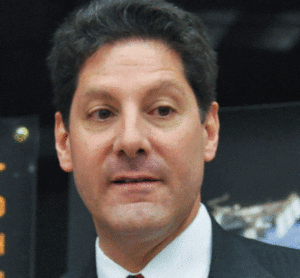
The most significant trend of 2020 is the unusually high number of significant societal developments that directly affect every space industry and industry segment. In the U.S., the impacts of climate change and global warming and rising social justice tensions were exacerbated by the COVID pandemic and the resulting economic crisis. These developments affect the incumbent business operations and practices while creating opportunities for new entrant technologies and operations.
Ken Davidian, PhD, Director of Research, FAA Office of Commercial Space Transportation, USA
About the authors:

Dr. Olga Stelmakh-Drescher is a NewSpace advocate, international space lawyer and space environmentalist – shaper of the Space Sustainability Goals and social responsibility for space activities concepts. She holds the position of a Chief Policy and Government Relations Officer at Exolaunch, a global leader in rideshare launch services and deployment technologies for small satellites. Dr. Olga has an extensive background in space matters, having worked in the space sector for more than 15 years, including seven years of governmental and parliamentarian engagement.
Dr. Olga is a Board Member of the International Institute of Space Law, Member of the WEF Global Future Council on Space and Corresponding Member of the International Academy of Astronautics. She places a lot of emphasis on leadership, knowledge-based society, inclusiveness and empowerment of the next generation, serves as mentor to many and is an often lecturer on issues of space sustainability and security, NewSpace and global space governance. Dr. Olga publishes extensively on space-related topics.

Steven Freeland is Emeritus Professor of International Law at Western Sydney University, specialising in Commercial Space Law, and previously the Dean of the School of Law. He also holds Visiting or Adjunct positions at various other Universities/Institutes in Copenhagen, Vienna, Toulouse, Hong Kong, Montreal, Kuala Lumpur, London and Queensland. Prior to becoming an academic, he had a 20-year career as an international commercial lawyer and an investment banker. He is a Member of the Advisory Group of the Australian Space Agency and has been an advisor to the Australian, New Zealand, Norwegian and several other Governments on issues relating to national space legislative frameworks and policy. He has represented the Australian Government at Committee on the Peaceful Uses of Outer Space (UNCOPUOS) meetings and has also been appointed by UNCOPUOS to co-chair multilateral discussions on the exploration, exploitation and utilisation of space resources, which will take place in April 2021. He is a Co-Principal of specialised space law firm Azimuth Advisory and is also a Director of the International Institute of Space Law, and a Member of the Space Law Committees of both the International Bar Association and International Law Association.
Steven Freeland is the host for the new series Space Cafe “Law Breakfast with Steven Freeland” launching 28 January 2021. More information you find here.



